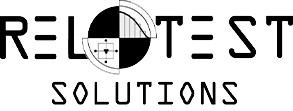Reliability engineering is an interdisciplinary field of engineering. It deals with the “non-functionality” of technical products and analyzes their failures. Reliability engineering combines approaches from probability theory, statistics and classical mechanical engineering – with the primary goal of solving technical problems in the long term.
Reliability engineering
essential processes for the holistic success of your products
As experts in the field of reliability engineering, we provide you with competent support and advice on all product reliability processes. We place exceptionally high quality standards on our services – after all, they have a decisive influence on the long-term success of your business.
Definition of reliability:
“Reliability” is the probability that a product will not fail during a defined period of time and under predetermined functional and environmental conditions. The three important core criteria are the probability (failure=random variable), the function (of the product) and the environment (external conditions).
We would be happy to advise you in a non-binding conversation.
We offer you custom-fit solutions in the field of reliability engineering
When it comes to planning, testing and analyzing the reliability of your products in detail, we at RelTest Solutions are your partner of choice.
As an overall process, reliability engineering consists of five different sub-processes, each of which can be considered a separate entity. Do you need our general reliability engineering support? Or would you like to use our services only in the area of reliability testing, reliability planning or vulnerability analysis? Whatever your concern is – we know our way around it! In addition, we develop reliability management solutions tailored to your individual circumstances and offer you the tools you need for successful reliability engineering with our consulting, coaching and training services.
Reliability Planning
At the beginning of product development is reliability planning. In this process, the reliability requirements to be met are defined, taking into account the requirements of the customer, the legislator and the product strategy. The result of this sub-process of reliability engineering is a depicted decision space, which is limited by factors such as legislation, technology and costs.
Vulnerability analysis
In this phase of reliability engineering, the focus is on identifying weak points at an early stage and achieving a sustained improvement in product reliability. The weak point analysis systematically identifies potential causes of failure and covers the period from the conception of the product to its readiness for series production.
Reliability testing
With reliability testing, tests on the service life and functionality of the product are defined and carried out. In service life testing, individual components, assemblies or complete systems are usually examined with the aim of a quantitative service life investigation. Functional reliability testing, on the other hand, focuses on analyzing the fulfillment of the product’s main function.
Reliability assurance
Reliability assurance is predominantly located in the product design phase and comprises a number of different process steps. These ensure that the product reliability requirements defined in a previous reliability engineering phase are met throughout the product life cycle.
Reliability Forecast
If you want to make a quantitative statement about the reliability of a product, this is based on certain data. In reliability prediction, data from testing or from real operation (field) are used for this purpose. The main task of this area of reliability engineering involves the statistical analysis of this data and the subsequent creation of a service life model on the relationship between the load and the service life of the product.

You too can ensure the long-term success of your products!
We at RelTest Solutions are at your personal disposal and look forward to convincing you with our qualitative reliability engineering services.
